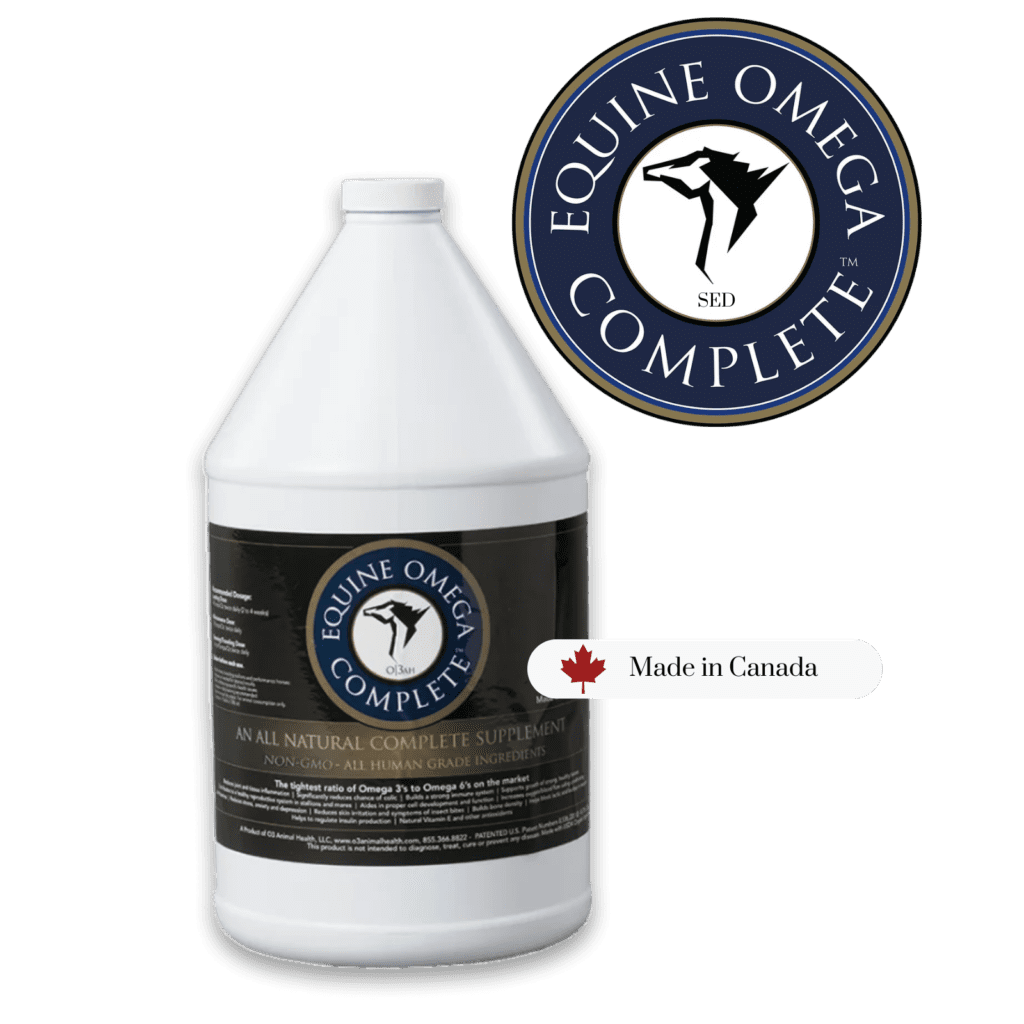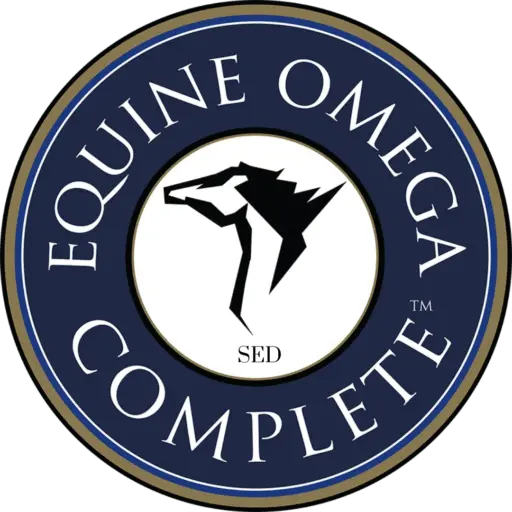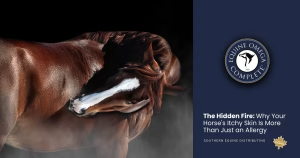The Importance of Omega Fatty Acids In Horse Diets
Just like humans, horses require omega-3 and 6 fatty acids in their diet. This is typically met by consuming large amounts of fresh pasture; however, high-quality grazing is unavailable during Canadian winter, and dry hay contains a very low count of these important fats.
This requires horses to be provided with supplemental sources such as flax, camelina oil and chia. Plant-based sources do not provide the most potent forms of omega-3, known as EPA and DHA.
While your horse can convert the plant-based sources of omega-3 into EPA and DHA, this conversion may not be very efficient, due in part to the fact that the same enzyme is required for the conversion of three different end products in horses: omega-6, EPA, and DHA.
Given that most diets contain higher amounts of omega-6 fats, the conversion of omega-3s to EPA and DHA may be reduced. For this reason, providing EPA and DHA directly can be beneficial. EPA and DHA are found in animals, transgenic plants, fungi and many microorganisms. Most commonly, they are extracted from oily fish.
Omega-3 Fatty Acids
Omega-3 fatty acids are important for many body functions including maintaining proper cell structure, reducing inflammation, and supporting a healthy immune system. While your horse can convert plant based sources of omega-3 into EPA and DHA, this conversion may not be very efficient, especially in the face of diets providing large amounts of omega-6 fats. For this reason, providing EPA and DHA directly can be beneficial especially for horses that are struggling with various inflammatory conditions such as arthritis, asthma, allergies, and colitis.
Omega-6 Fatty Acids
While omega-3 fats tend to get the majority of the positive attention with omega-6 versions being scorned as causing inflammation, in reality both are essential. Omega-6 fatty acids are important for many body functions including maintaining proper cell structure and supporting a healthy immune system. Omega-6 fatty acids are found in plant oils such as soybean oil, corn oil, and sunflower oil. While horses need both omega-3 and omega-6 fatty acids, it is important that they maintain a proper balance. Some inflammation is an important response to such things as wounds. The key is not to encourage excessive inflammation as this can lead to a number of health conditions.
Importance of Balance
This balance and requirement for both omega-3 and 6 in the horse’s diet is the reason for our use of soybean oil combined with fish oil. Of the common plant based oils, soybean oil, unlike corn oil, provides a small amount of omega-3 fat. When this is combined with the EPA and DHA provided by fish oil, the result is a product that provides a beneficial combination of omega-3 and 6 fatty acids that supports numerous health functions.
You can find EPA and DHA combined with our cold pressed organic soybean oil in Equine Omega Complete, Vitamin E and Mega Sweat.


Equine Omega Complete®
This blend of DHA and EPA essential omega fats and natural antioxidants supports inflammatory response, performance recovery, insulin regulation, and weight management while ensuring strong hooves and a radiant coat. Equine Omega Complete® is a unique blend of organic soybean oil, wild-caught fish oil and all-natural vitamin E.
October 21, 2022: The owner has noted behaviour has been completely normal.
Upon Gastroscope exam, stomach emptying was noted to be adequate. No ulcers were observed in the squamous mucosa. No active lesions could be seen in the glandular mucosa. A slightly thickened glandular fold is still present; however, the lesion appeared stable and inactive. The pyloric area has been remodelled and improved over the 60-day course of Equine Omega Complete®. Gelding recommended continuing on Equine Omega Complete® at 2 oz twice daily.





